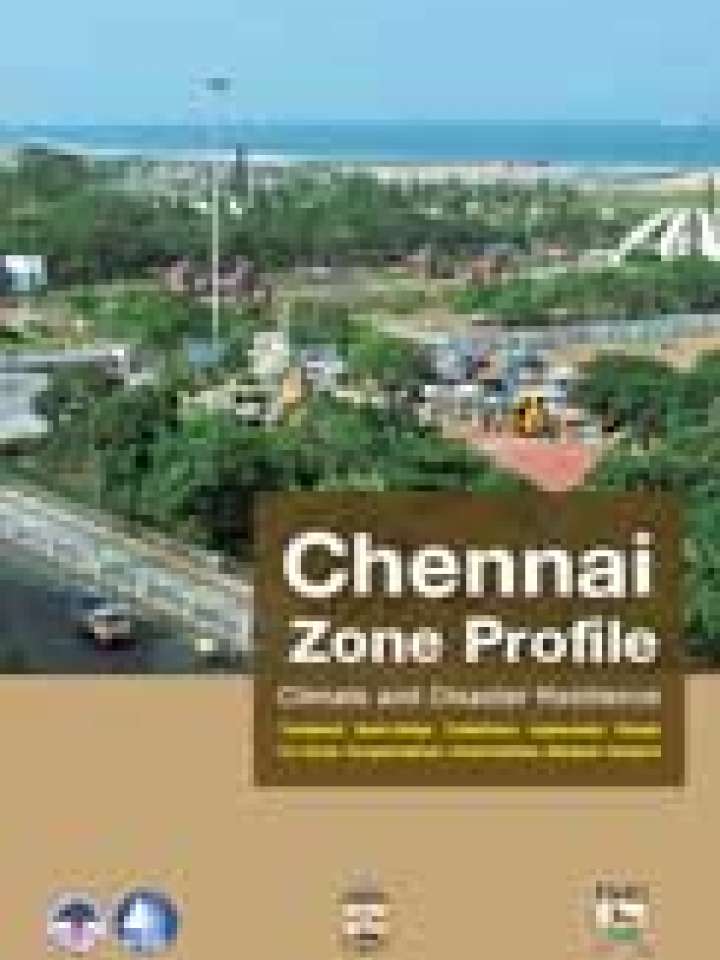Chennai zone profile: climate and disaster resilience
This publication illustrates the results of a study conducted under the Climate and Disaster Resilience Initiative (CDRI) in Chennai City, India. It assesses the city's vulnerability to climate-related hazards (e.g. floods, cyclones, heat waves, droughts) along with the effects of urbanization, and attempts to unveil the capacity of its urban infrastructure and services to withstand against disasters and expectations for communities and institutions to deal with such events.
It uses data of 10 administrative zones in Chennai City collected through a questionnaire administered to local government officials based on the five dimensions of CDRI (physical, social, economic, institutional and natural). The assessment outcomes detail the city's current status of resilience to climate-related disasters in each zone and show the way forward by describing how to absorb, maintain and recover from a hazard leading to a disaster.
CDRI is an umbrella initiative of Kyoto University funded by the Global Center of Excellence (GCOE) Program "Human Security Engineering for Asian Megacities," which consists of zone-profiling research, education, training and implementation, and was developed in collaboration with the Corporation of Chennai and University of Madras.
Explore further
